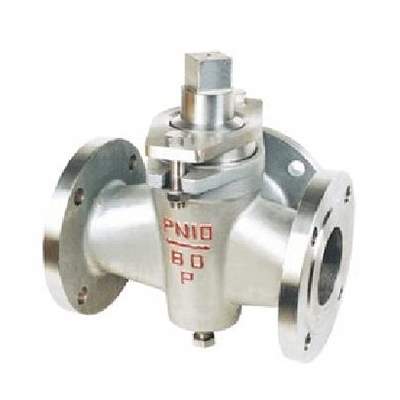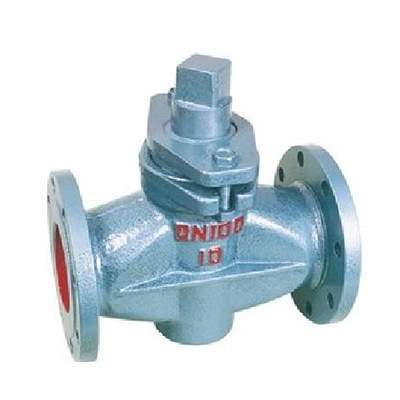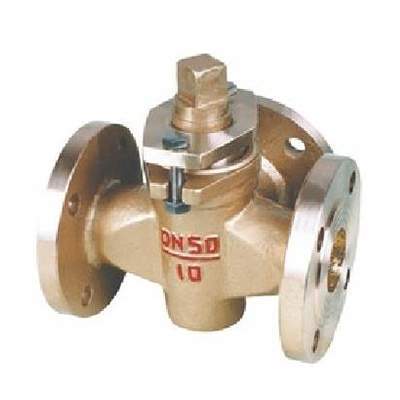Welcome to My Blog!
Before we dive into the content, I’d love for you to join me on my social media platforms where I share more insights, engage with the community, and post updates. Here’s how you can connect with me:
Facebook:https://www.facebook.com/profile.php?id=61563865935136
Now, let’s get started on our journey together. I hope you find the content here insightful, engaging, and valuable.
Introduction

In the dynamic world of industrial fluid control, the role of reliable plug valve manufacturers is paramount. These manufacturers are the backbone of industries ranging from oil and gas to chemical processing, ensuring seamless and efficient operations. This blog delves into the intricacies of plug valves, exploring how leading plug valve manufacturers contribute to maximizing efficiency and operational excellence. We will discuss the various types of plug valves, their applications, and the critical factors that distinguish top-tier manufacturers. Moreover, we will examine how these manufacturers are adapting to the challenges of modern industrial environments.
Understanding Plug Valves and Their Importance
Plug valves are essential components in fluid handling systems, known for their simple design and robust performance. They control flow using a cylindrical or conical plug with a passage that aligns with the pipe’s flow path when open. High-quality plug valve manufacturers produce valves capable of handling high pressures and temperatures, making them suitable for diverse industrial applications. The ability to provide a quick and reliable shutoff is a core function that these valves perform. These valves are also known for their minimal pressure drop, which is crucial in maintaining system efficiency.
Key Features and Benefits from Leading Plug Valve Manufacturers

Leading plug valve manufacturers focus on several key features to ensure their products meet stringent industry standards. These include:
- Durable Materials: Utilizing high-grade materials like stainless steel, carbon steel, and specialized alloys to withstand corrosive and abrasive fluids. This ensures longevity and reduces the need for frequent replacements.
- Precision Engineering: Employing advanced manufacturing techniques to ensure precise tolerances and leak-free performance. This level of accuracy is critical for maintaining consistent flow rates and preventing costly leaks.
- Customization Options: Offering tailored solutions to meet specific application requirements, including various port configurations and actuation methods. This flexibility allows industries to optimize their systems for maximum efficiency.
- Ease of Maintenance: Designing valves that are simple to disassemble and maintain, minimizing downtime and operational costs. This feature is essential for industries where continuous operation is crucial.
Types of Plug Valves Offered by Top Manufacturers
Plug valve manufacturers offer a variety of valve types to cater to different industrial needs:
- Lubricated Plug Valves: Ideal for high-pressure applications, these valves use a lubricant to reduce friction and prevent leakage. This lubrication also extends the valve’s lifespan in harsh environments.
- Non-Lubricated Plug Valves: Suitable for applications where contamination is a concern, these valves use polymer or elastomer sleeves for sealing. This eliminates the risk of lubricant contaminating the fluid being handled.
- Inverted Plug Valves: Designed for applications requiring minimal maintenance, these valves have the plug oriented upside down to prevent sediment buildup. This design significantly reduces the need for frequent cleaning and maintenance.
- Multiport Plug Valves: These valves offer multiple ports, allowing for complex flow control and diversion. This is particularly useful in systems requiring precise flow management and distribution.
Applications Across Diverse Industries
Plug valves from reputable plug valve manufacturers are used across a wide range of industries:
- Oil and Gas: Controlling the flow of crude oil, natural gas, and other hydrocarbons. These valves are essential in both upstream and downstream operations.
- Chemical Processing: Handling corrosive and hazardous chemicals. The robust design and material options make them suitable for these demanding applications.
- Water and Wastewater Treatment: Managing the flow of water and sewage. These valves are crucial for ensuring efficient and reliable water management.
- Pharmaceuticals: Ensuring precise flow control in hygienic applications. The ability to maintain sterility and prevent contamination is vital in this industry.
- Mining: Handling abrasive slurries and high-pressure fluids. The durable construction of these valves is essential for withstanding harsh mining conditions.
Factors to Consider When Choosing Plug Valve Manufacturers
When selecting plug valve manufacturers, several factors are crucial:
- Quality and Certifications: Look for manufacturers with certifications like ISO 9001, ensuring adherence to quality standards. This guarantees that the products meet internationally recognized benchmarks.
- Experience and Expertise: Choose manufacturers with a proven track record and extensive industry knowledge. Their experience can provide valuable insights and solutions.
- Customer Support: Select manufacturers that provide excellent technical support and after-sales service. This support is essential for troubleshooting and maintenance.
- Customization Capabilities: Ensure the manufacturer can provide tailored solutions to meet your specific needs. This flexibility is crucial for optimizing system performance.
- Delivery and Reliability: Check for reliable delivery times and consistent product quality. On-time delivery can minimize project delays and downtime.
Innovation and Technology in Plug Valve Manufacturing
Leading plug valve manufacturers continuously invest in research and development to enhance product performance and efficiency. Technological advancements include:
- Advanced Materials: Developing new alloys and composites to improve corrosion resistance and durability. These materials extend the lifespan of the valves in harsh environments.
- Automated Manufacturing: Implementing robotic systems to ensure precision and consistency. This automation reduces human error and improves product quality.
- Digital Monitoring: Integrating sensors and data analytics to provide real-time performance monitoring. This allows for proactive maintenance and reduces downtime.
- Enhanced Sealing Technology: Creating new sealing materials and designs to minimize leakage and improve reliability. This technology is critical for handling hazardous fluids.
The following table shows some example of plug valve specifications:
| Specification | Value |
|---|---|
| Pressure Rating | 150 PSI to 5000 PSI |
| Temperature Range | -50°F to 400°F |
| Material | Stainless Steel, Carbon Steel, Alloy Steel |
| Size Range | 1/2 inch to 24 inches |
| Connection Type | Flanged, Threaded, Welded |
Maintenance and Longevity of Plug Valves

Proper maintenance is essential to ensure the longevity and optimal performance of plug valves. Plug valve manufacturers often provide guidelines for maintenance, including:
- Regular Lubrication: Applying appropriate lubricants to reduce friction and wear. This is particularly important for lubricated plug valves.
- Inspection and Cleaning: Periodically inspecting and cleaning the valve to remove debris and prevent corrosion. This helps maintain optimal performance.
- Seal Replacement: Replacing worn or damaged seals to prevent leakage. This ensures the valve continues to provide a reliable shutoff.
- Proper Installation: Ensuring correct installation to avoid premature failure. Proper installation is crucial for preventing leaks and damage.
Conclusion
In conclusion, plug valve manufacturers play a critical role in ensuring the efficient and reliable operation of fluid control systems across various industries. By focusing on quality, innovation, and customer support, these manufacturers contribute significantly to maximizing operational efficiency. For those seeking top-quality plug valve solutions, it is essential to partner with experienced and reputable manufacturers. To find out more about how our plug valve solutions can improve your efficiency, contact us today and discover how our products can streamline your operations.
FAQ
What are the primary applications of plug valves?
Plug valves are primarily used in oil and gas, chemical processing, water treatment, and other industries requiring robust fluid control. Their simple design and durability make them versatile for various applications.
How do I choose a reputable plug valve manufacturers?
Consider factors like quality certifications, experience, customer support, and customization capabilities. These factors ensure you are partnering with a reliable and capable manufacturer.
What materials are commonly used in plug valve manufacturing?
Common materials include stainless steel, carbon steel, and various alloys. The choice of material depends on the specific application and fluid being handled.
